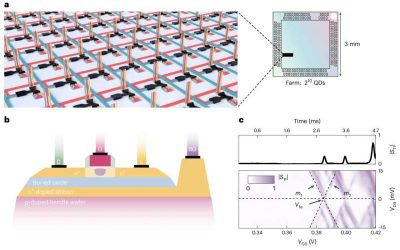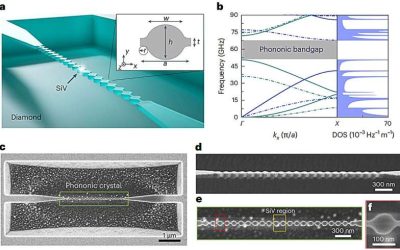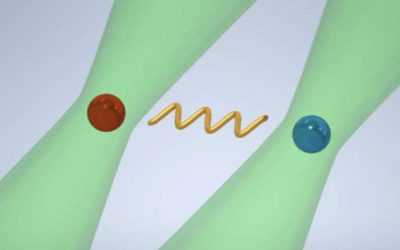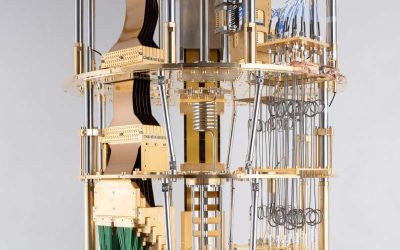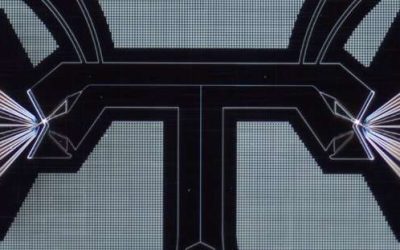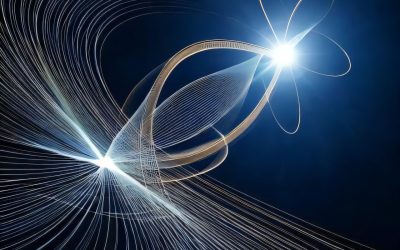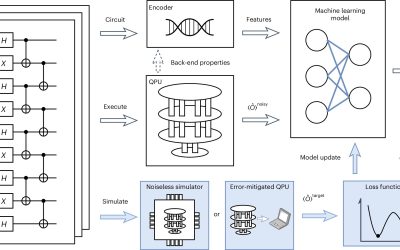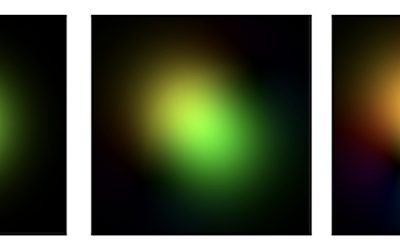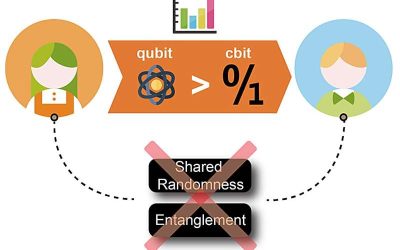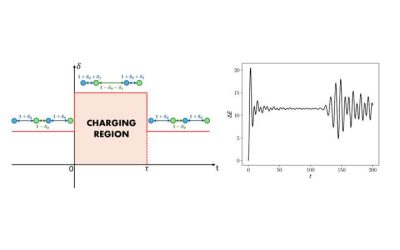Quantum computers have the potential of outperforming classical computers on some optimization tasks. Yet scaling up quantum computers leveraging existing fabrication processes while also maintaining good performances and energy-efficiencies has so far proved...
Quantum Physics
Newly fabricated crystals control interactions between high-frequency phonons and single quantum systems
Phonons, the quantum mechanical vibrations of atoms in solids, are often sources of noise in solid-state quantum systems, including quantum technologies, which can lead to decoherence and thus adversely impact their performance.
Scientists achieve direct experimental realization of dual-type entangling gates
To develop scalable and reliable quantum computers, engineers and physicists will need to devise effective strategies to mitigate errors in their quantum systems without adding complex additional components. A promising strategy to reduce errors entails the use of...
Quantum experiment generates long-range entanglement in 54-qubit system
The operation and performance of quantum computers relies on the ability to realize and control entanglement between multiple qubits. Yet entanglement between many qubits is inherently susceptible to noise and imperfections in quantum gates.
The first observation of time-domain oscillations between two distant semiconductor spin qubits
Quantum computing holds the promise of outperforming classical computing on some optimization and data processing tasks. The creation of highly performing large-scale quantum computers, however, relies on the ability to support controlled interactions between qubits,...
Pioneering approach expands possibilities for measuring quantum geometry in solids
Understanding and reliably measuring the geometric properties of quantum states can shed new light on the intricate underpinning of various physical phenomena. The quantum geometric tensor (QGT) is a mathematical object that provides a detailed description of how...
Simple machine learning techniques can cut costs for quantum error mitigation while maintaining accuracy
Simple machine learning techniques can cut costs for quantum error mitigation while maintaining accuracy
Observing gain-induced group delay between multiphoton pulses generated in a spontaneous down-conversion source
Spontaneous parametric down-conversion (SPDC) and spontaneous four-wave mixing are powerful nonlinear optical processes that can produce multi-photon beams of light with unique quantum properties. These processes could be leveraged to create various quantum...
Experiment realizes quantum advantage in data storage with a photonic quantum processor
In recent years, quantum physicists and engineers have been trying to develop quantum computer processors that perform better than classical computers on some tasks. Yet conclusive demonstrations proving that quantum systems perform better than their classical...
New spin quantum battery can be charged without an external field
Over the past few years, some researchers have been working on alternative energy storage systems that leverage the principles of quantum mechanics. These systems, known as quantum batteries, could be more efficient and compact than conventional battery technologies,...

